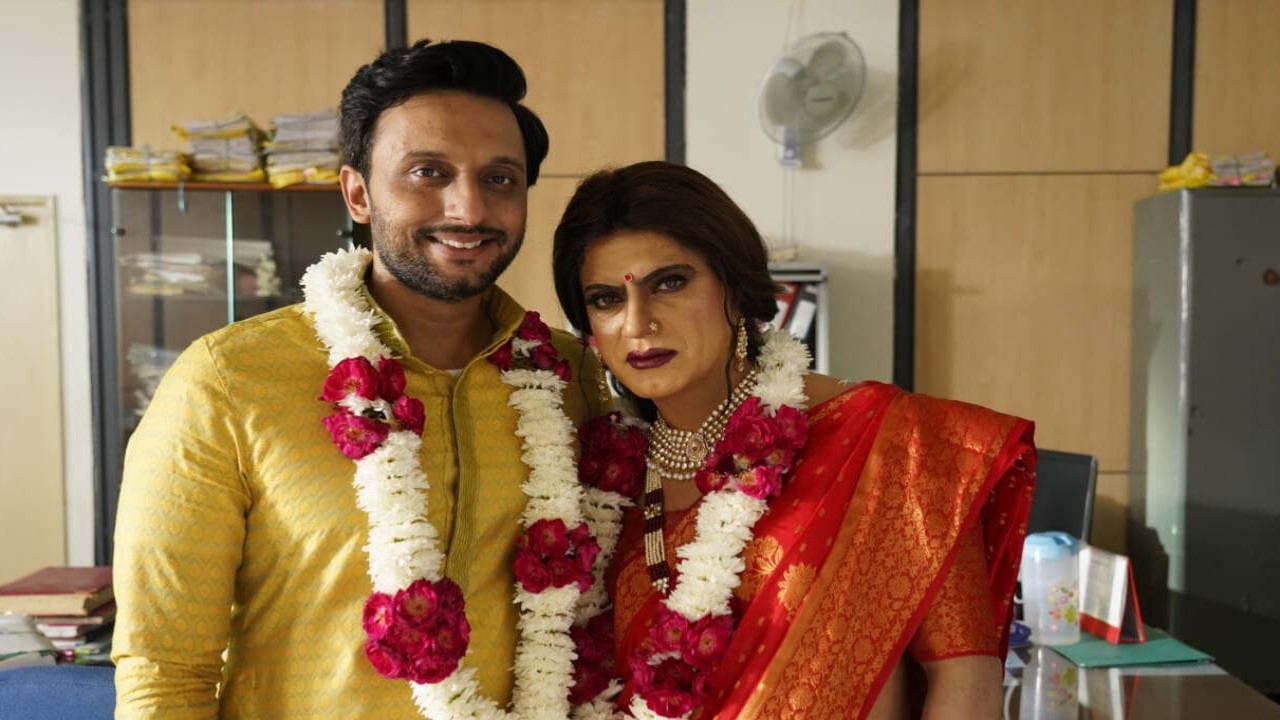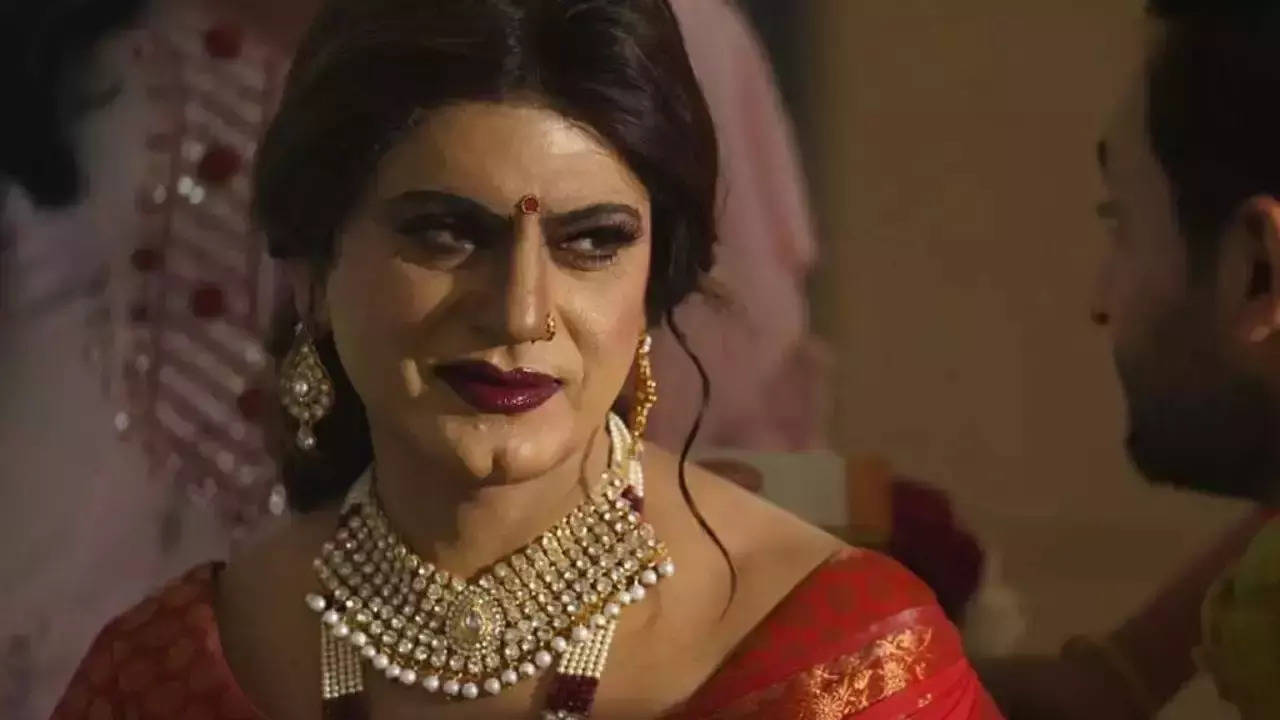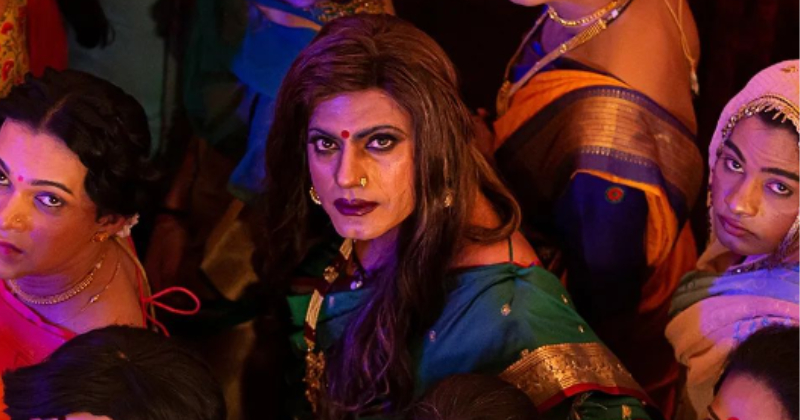CAST: Nawazuddin Siddiqui, Anurag Kashyap, Mohammad Zeeshan Ayyub, Ila Arun, Saurabh Sachdeva
DIRECTOR: Akshat Ajay Sharma
In “Haddi,” we follow the journey of a transgender woman, portrayed by Nawazuddin Siddiqui, who seeks retribution in the gritty world of crime surrounding Noida. In this bleak environment, the protagonist grapples with the influence of a former gangster turned politician, played by Anurag Kashyap. This politician orchestrates a sinister money-making operation, manipulating unknowing accomplices to do his bidding.
Nawazuddin Siddiqui infuses boundless energy into the character of the transwoman forced to fight back with equal force. While there may be debates about casting a male actor in this role, Siddiqui pushes his limits, striving to prevent the character from descending into a mere caricature.
Throughout the film, Siddiqui’s performance demands moments of emotional intensity. These instances aim to convey the physical and psychological anguish of undergoing gender transition and the enduring pain stemming from the loss of loved ones and personal dignity. “Haddi” offers a thought-provoking exploration of these themes, brought to life by Siddiqui’s passionate portrayal.
Directed by Akshat Ajay Sharma ( Kashyap’s mentee) and co-written by Sharma and Adamya Bhalla, falls short of realizing its full potential as an electrifying cinematic experience.
However, this doesn’t prove to be excessively detrimental to the overall impact of the film. Instead, it takes its place in the shadows, introducing us to a cast of vulnerable and violent characters who eke out a fragile existence on the fringes of the city, surviving on morsels thrown to them by their pathologically secretive, self-serving overlords.
Certain elements of the film’s narrative, such as its exploration of a transgender community and its significant references to Hindu epics to contextualize the community’s place in a heteronormative society, as well as its technical aspects, including the camerawork and music, deserve noteworthy recognition.
The initial hour of the Zee5 production is marked by a sustained sense of intrigue and suspense. The nature of Hari/Harika’s (played by Nawazuddin) involvement in a mysterious business remains shrouded in mystery until the final third of the 135-minute film. What does not work for the movie is early spoiler reveal of the ulterior motive with which Haddi joins Ahlawat. A knowing audience has no engagement loyalty once the cat is literally out of the bag.
The plot veers into a realm of predictable revenge story clichés much earlier, particularly when the central character’s motivation is fully revealed. The revelations concerning Haddi’s work for the antagonist, delivered in a matter-of-fact manner, lack the chilling impact they should ideally carry.
Harika/Haddi navigates between their discarded male identity and their female persona, with an allusion to an episode about Iravan and his sacrifice in the Mahabharata providing context for this transformation. They infiltrate a gang led by the ruthless land-grabber Pramod Ahlawat.
The opening lines of “Haddi” are delivered offscreen by Siddiqui, his voice a whispered proclamation with a resounding echo: “Pata hai humse log kyun darte hain? Kyun ke humein vardaan hai. Hamara ashirwad bahut shaktishali hota hai aur shraap bahut bhayavah. Aur uss sey bhayavah jaante ho kya hota hai? Hamara badla. (Do you know why people fear us? We are endowed with great power. Our blessings have immense strength, and our curses are fearsome. And do you know what is even more fearsome? Our vengeance.)”
With these words, the stage is set for a tale of blessings, curses, and retribution in a shady world controlled by those who perpetrate atrocities against those who cannot defend themselves. These lines resurface several times as Harika moves closer to her intended objective.
In “Haddi,” the clashes between ruthless profit-driven gangsters, aided by a corrupt bureaucrat and a cunning policeman, and a group of transgenders are depicted in an excessively violent and gory manner. Among the victims, Harika/Haddi stands out as the sole individual capable of mounting resistance, driven by an unwavering quest for justice.
Apart from the cisgender criminals and the transgender community, there is another distinct group in Haddi’s narrative. These individuals cross-dress to attract customers and are involved in a nocturnal business revolving around sex and drugs. Among them are Chunna (Shriidhar Dubey), Jogi (Saharsh Kumar Shukla), Satto (Rajesh Kumar), and government official Bibek Mitra (Vipin Sharma). They are integral to the clandestine operation masterminded by Pramod Ahlawat, the film’s antagonist. Pramod’s sinister agenda involves evicting transgender groups, including one led by Revathi Amma (Ila Arun), a matriarch who stands up for many, including Haddi, to seize their land for the construction of upscale condominiums. Trans rights activist Irfan Rizvi (Mohammd Zeeshan Ayyub) resorts to legal means in an attempt to thwart Pramod Ahlawat’s project.
However, there is something even darker lurking in the villain’s domain. Pramod also owns a chemical factory concealing a gruesome secret. His trusted aide, Inder (Saurabh Bharadwaj), is the only one privy to this until Haddi enters the scene with a plan of his own. The plot is rife with flashpoints, including multiple murders, an accidental death, and a large-scale massacre that claims the lives of many in the blink of an eye.
Revathi Amma’s peaceful home becomes the target of Pramod Ahlawat and his gang. Haddi, who is in a relationship with Irfan Rizvi, a heterosexual man, takes it upon himself to deliver justice when the situation spirals out of control.
Haddi has been acquainted with violence since childhood, enduring persecution, lynching, humiliation, and abandonment. Her story, recounted through an information-packed flashback, finds solace in Amma’s home. However, when that sanctuary is under attack, she transforms into a relentless avenger, a transformation evident in the film’s early sequences.
While “Haddi” is emotionally charged, some of the characters are underdeveloped, none more so than the antagonist. Anurag Kashyap’s portrayal doesn’t delve deep enough into the character, resulting in Pramod Ahlawat appearing more as a smirking, wisecracking deviant than the truly menacing figure he is meant to be.
“Haddi” is a revenge drama with a unique angle, shedding light on issues related to the transgender community with bold strokes and advocating for inclusivity. However, despite its strong atmosphere, creative use of music, overall message, and Nawazuddin Siddiqui’s outstanding performance, it ultimately feels more style than substance.








